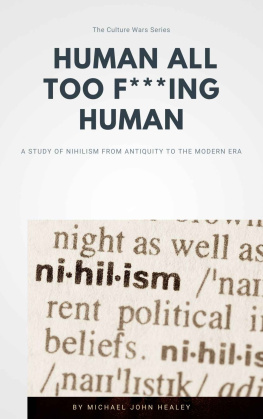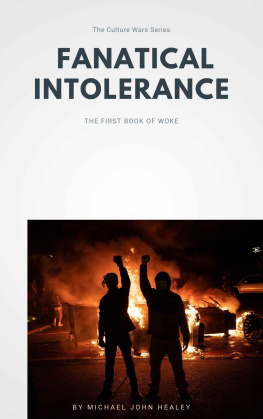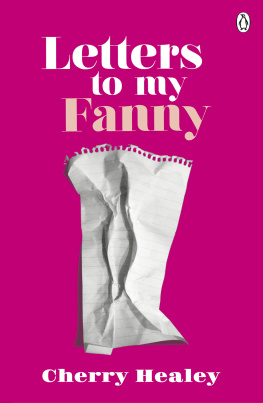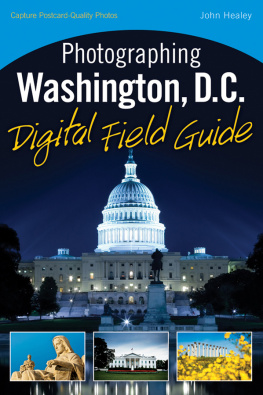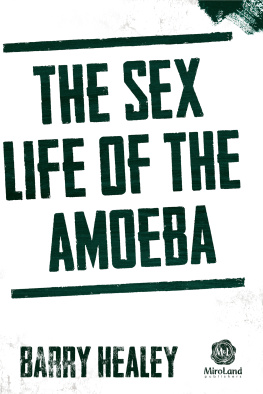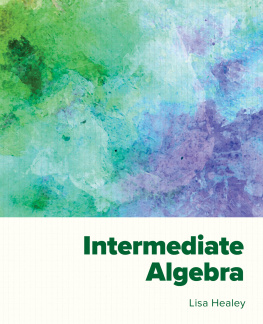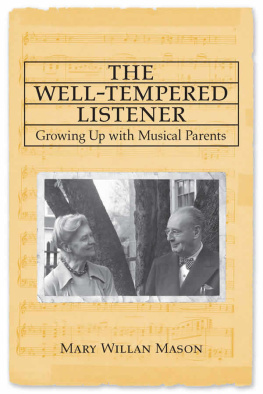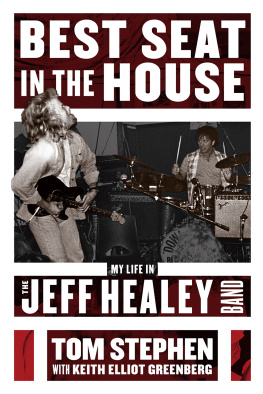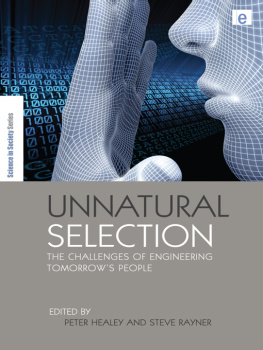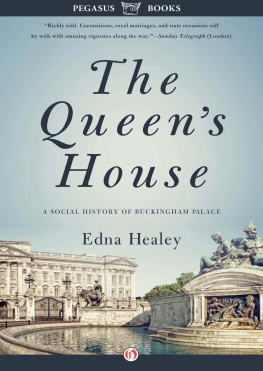Healey - HUMAN, ALL TOO FU**ING HUMAN
Here you can read online Healey - HUMAN, ALL TOO FU**ING HUMAN full text of the book (entire story) in english for free. Download pdf and epub, get meaning, cover and reviews about this ebook. year: 2021, genre: Religion. Description of the work, (preface) as well as reviews are available. Best literature library LitArk.com created for fans of good reading and offers a wide selection of genres:
Romance novel
Science fiction
Adventure
Detective
Science
History
Home and family
Prose
Art
Politics
Computer
Non-fiction
Religion
Business
Children
Humor
Choose a favorite category and find really read worthwhile books. Enjoy immersion in the world of imagination, feel the emotions of the characters or learn something new for yourself, make an fascinating discovery.
- Book:HUMAN, ALL TOO FU**ING HUMAN
- Author:
- Genre:
- Year:2021
- Rating:5 / 5
- Favourites:Add to favourites
- Your mark:
- 100
- 1
- 2
- 3
- 4
- 5
HUMAN, ALL TOO FU**ING HUMAN: summary, description and annotation
We offer to read an annotation, description, summary or preface (depends on what the author of the book "HUMAN, ALL TOO FU**ING HUMAN" wrote himself). If you haven't found the necessary information about the book — write in the comments, we will try to find it.
HUMAN, ALL TOO FU**ING HUMAN — read online for free the complete book (whole text) full work
Below is the text of the book, divided by pages. System saving the place of the last page read, allows you to conveniently read the book "HUMAN, ALL TOO FU**ING HUMAN" online for free, without having to search again every time where you left off. Put a bookmark, and you can go to the page where you finished reading at any time.
Font size:
Interval:
Bookmark:
Human, all too fu**ing human: a study of nihilism from antiquity to the modern era
Michael John Healey
Copyright 2022 by Michael John Healey
Thank you for buying an authorised edition of this book and for complying with copyright laws by not reproducing, scanning, or distributing any part of it in any form without permission. Please support the author.
Meet the Author
Mike grew up on the outskirts of a council housing estate in Greater Manchester. He worked as a bingo caller and shop assistant before attending Salford University. As well as teaching at undergraduate level, he has published short-form literary fiction and is a features contributor to magazines for writers.

Table of Contents
The short-term inspiration behind this work is the experience of the three lockdowns of 2020-21. Not only was this a time of reflection, of contemplation, but an opportunity to look deeper into a topic which fascinates me. Confined indoors, separated from others, it became easy to think life pointless. Indeed the rising suicide rate suggests that a good number had concluded as such.
Yet my interest in the topic predates the twenty-first century. As an undergraduate, whenever the conversation turned to philosophy Id be quick to suggest that everything is ultimately meaningless. Being something of a relativist back then, Id contend that systems of morality were all as good as one another....and by that I meant they were useless. I once said this during a tutorial with a medieval scholar. I put it to the esteemed professor that Christian values, or any values at all really, were unimportant. As for the torture chambers of The Middle Ages something hed lectured about in grizzly detail earlier in the week they were nothing more than a ghoulish curiosity. If there was a lesson to be learnt from studying history it was that it consisted of suffering, with not much by way of progress to speak of. The glint of the crucifix hanging around his neck ought to have been enough to cease my rant. But instead I continued to present a nihilistic argument, about the massacres in Rwanda, the Holocaust, and the Killing Fields of Cambodia. My premise was simple. Everything was destined to fall apart, nothing really mattered, and life therefore had little going for it.
If hed drawn out a machete and hacked to death my classmates, almost certainly I would have altered my opinion. As an immature eighteen-year-old, however, I didnt have enough experience of life to understand that I was talking bunkum. The medievalist summed this up nicely when he said, if you really think that then you ought to hurl yourself from the window.
As we were on the second floor, the only consequence would have been a broken ankle. Still, I refused his suggestion. Werent we all heading towards a terrible fate? A mere three score and ten years would elapse before we breathed our last. Or you might walk out into the road and get splattered by a double-decker bus. Incineration would follow....or youd be left to rot in the ground....flesh devoured by maggots. Shaking his head, my tutor reminded me that the assignment was due at the end of the month. I cant have been all that much of a nihilist, as I happily submitted an upper second....a mark shy of a first.
It may be true that we inhabit a huge rock hurtling through space, and one day that rock....and the sun which keeps it warm....will be gone. Yet there is a difference in accepting such a bleak cosmology and believing that nothing has worth. If anything, meaning flows from an appreciation of the finite. Knowing that you are only here for a limited span is strong motivation to pursue a purpose, and to allow others to do the same. Nihilism would be a poor basis for a quality life or a decent society.
Ultimately it can be said that the nihilist misunderstands time. As humans, we do not exist in the same chronological dimension as rivers, mountains, oceans, planets. In purely geological terms seventy or eighty years is a blip. However if we think in such a way then it can be utterly undermining. Meaning is exclusively human anyway. Fields, glaciers and seas simply exist. Unlike us, they lack the wherewithal to think. Our seventy, eighty, ninety or a hundred years ought not to be dismissed as fruitless, simply because an oak tree will be there long after were gone.
As for the here and now, the third decade of the twenty-first century, a somewhat negative vibe has emerged in Western societies. Many are those, especially the young, who now favour a point of view I thankfully abandoned. This negativity tends to be directed less towards human existence in general, with the possible exception of deep greens, and more towards liberal capitalist democracy. As will be seen in the examples I present which are many and varied, there is a strong whiff of nihilism in the air. I have drawn upon a range of disciplines and eras, and in doing so attempted to convey the difficulty of the subject.
Nihilism is often used as a term of disparagement. In recent years cultural conservatives have accused BLM, Antifa and other so-called woke movements of such. Though the label is to an extent justifiable, it ought to be applied delicately, incrementally, rather than in a black and white way. A radical pressure group, for example, may have nihilistic strategies but positive aims abject destruction being considered prerequisite for bringing about something better. The same applies to the individual. As will be seen, the internet troll Old Holborn operates in a manner which could be thought of as nihilistic, using social media to denigrate and belittle. Yet he also alleges that he does so in order to prevent the ongoing denigration of free speech. The term cannot be thrown around slapdash then.
Similarly, care has to be taken with the sources. This is especially so with the examples I have used from antiquity. The chroniclers, not least Suetonius, saw the likes of Nero and Tiberius through a moral and political lens. This was imbued with a nostalgic yearning for a restoration of Republican values. Nevertheless, the tales of the early emperors especially when judged in contrast to the reign of Marcus Aurelius, provide an insight into the dichotomy between the humanist and narcissistic/nihilist character.
At the heart of this account is the concept of the fold of humanity. Admittedly this will seem naive to some readers. After all, it casts humanity as a coherent block without divisions of class, ethnicity, gender, region, sexuality et cetera. Still, it isnt entirely outlandish to say that Western societies retain core values. These are values which the nihilist rubbishes and rails against, especially those of life and property. Ultimately the true nihilist thinks little, it would seem, of any variety of destruction, of buildings, of others, as in the grand scheme of things these are considered irrelevant. A person is but dust in the waiting....while even the grandest mansion will one day be reduced to rubble.
The true nihilist is in a desperately small minority of a minority of bad apples that would do harm unto others. A central premise here is that if needs are met, including food, housing and meaningful employment, then the vast majority of us will be able to empathise with others, not wishing ill upon our fellow travellers in life. As such, the analysis comes from the perspective of the experience of living in a generally successful society rather than one which is deeply divided and dysfunctional. Then again, a key theme especially with regards to culture is how the nihilist disposition exerts an influence. The abject pessimism in art, music and film appear to reflect a yearning after an idealised past, such as with Oliver Stones Natural Born Killers . In other words the present is conceived as an abyss of suffering. This isnt pure nihilism, as it were, but modernity and humanity being painted in the darkest of hues.
Font size:
Interval:
Bookmark:
Similar books «HUMAN, ALL TOO FU**ING HUMAN»
Look at similar books to HUMAN, ALL TOO FU**ING HUMAN. We have selected literature similar in name and meaning in the hope of providing readers with more options to find new, interesting, not yet read works.
Discussion, reviews of the book HUMAN, ALL TOO FU**ING HUMAN and just readers' own opinions. Leave your comments, write what you think about the work, its meaning or the main characters. Specify what exactly you liked and what you didn't like, and why you think so.

